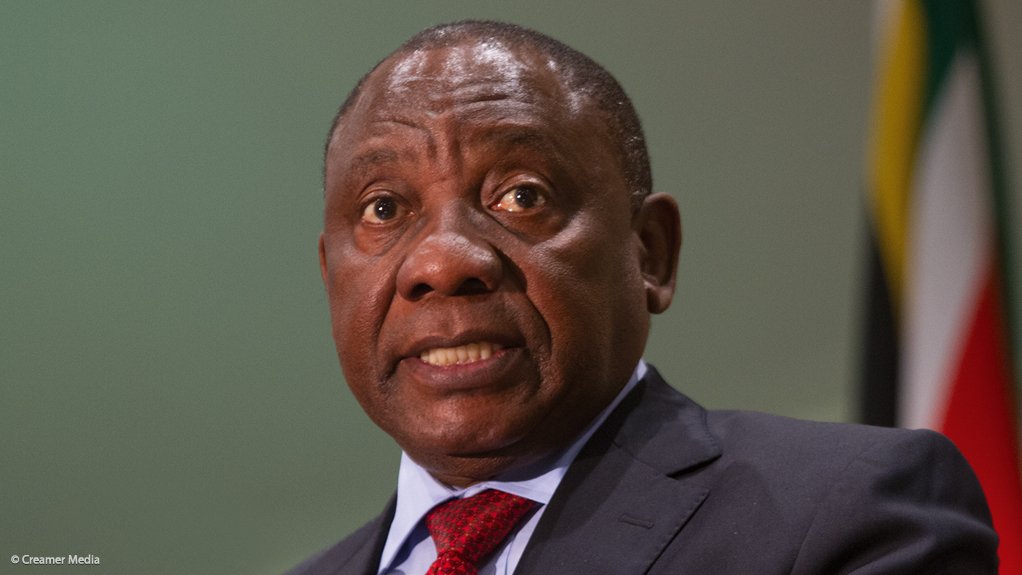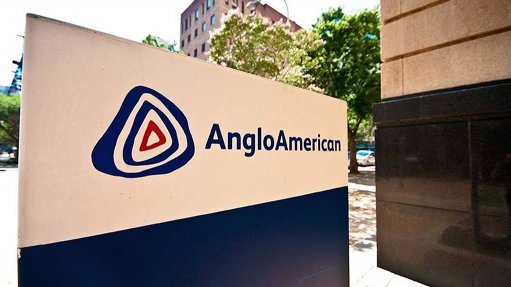Ramaphosa’s ‘New Deal’ could revive investor confidence, restore fiscal discipline – Goldman Sachs
President Cyril Ramaphosa’s economic policy platform – otherwise known as the ‘New Deal’ for South Africa – does not represent a significant philosophical departure from stated objectives in the existing National Development Plan (NDP), but Ramaphosa’s focus on economic stewardship and reform does appear to mark a political inflection point for South Africa, says investment banking, securities and investment management firm Goldman Sachs.
The ‘New Deal’ is designed to correct the policy missteps and leadership failures of the past decade, reverse the deterioration of institutions and support business and consumer confidence.
Its priorities include boosting private investment by removing policy uncertainty, restoring fiscal discipline and financial health to State-owned enterprises (SOEs) and combating corruption and State capture.
In an economic analysis of the ‘New Deal’, Goldman Sachs notes that the policy proposals are intended to boost confidence in the short term, support growth in the medium term and address underlying structural issues in the longer term.
“While market participants have welcomed the recent change of leadership, as reflected in the strengthening of the rand, they remain collectively optimistic on prospects for the implementation of reforms, given potential pressure from vested interests, political risks and the magnitude of social and economic challenges,” the firm adds.
It further points out that four key areas warrant monitoring for indications of reform progress in the coming months, which include the mining sector, land reform, SOE policy and public wage negotiations.
MINING SECTOR
Mineral Resources Minister Gwede Mantashe has indicated that he will finalise a draft of the Mining Charter in May. This is likely to specify targets for black ownership, lay out a clear framework for licensing and taxation, and resolve policy uncertainty.
“The mining sector – a key contributor to the South African economy and exports – has seen a decline in the past two decades on the back of policy uncertainty and disinvestment, reducing production, shedding jobs and has been a significant factor behind the erosion of the country’s export growth.
“In our view, both symbolically and in terms of its importance to the economy, restoring a stable policy framework that incentivises investment is critical in the mining sector and the Ramaphosa administration is likely to take steps in this direction by mid-year,” says Goldman Sachs.
That said, the finalisation of the charter, on its own, is unlikely to entirely resolve policy uncertainty, the firm notes.
The recent announcement by Mantashe that the Department of Mineral Resources will appeal the ruling on “once empowered, always empowered” by the North Gauteng High Court, which ruled that companies that had reached 26% black ownership but subsequently fell below did not need to top up their ownership and would not be penalised, raises the prospect that lingering legal uncertainties will remain in the courts for years to come, even with a clarified charter, it adds.
LAND REFORM
Ramaphosa has included a policy of land expropriation without compensation following the African National Congress’s (ANC’s) resolution to this effect, although he has emphasised that this must take place within constitutional constraints and without damaging the economy.
“Given the scope for infringing on property rights, this policy has raised concerns among investors and land owners, not least because the ANC has supported a motion tabled by the Economic Freedom Fighters in Parliament to investigate constitutional amendments to the section of the Bill of Rights that deals with the conditions under which the government may expropriate land.
“Our understanding of South African law suggests that, in certain limited circumstances, South African courts would likely view expropriation without compensation as both technically and conceptually possible within the contours of the current Constitution,” Goldman Sachs says.
It adds that this is likely possible and that there is, therefore, no need for constitutional amendments.
Moreover, as Ramaphosa has mentioned in recent press statements, there is significant scope for redistribution and repurposing of land that is already in the hands of the State or SOEs, without requiring any expropriation.
SOE POLICY
“Contingent liabilities on SOE balance sheets arguably represent the greatest threat to South Africa’s fiscal position, in particular those at State-owned Eskom – which is highly levered and faces short-term cash flow pressures, the firm points out.
In January, government announced board and management changes at Eskom and Public Enterprises Minister Pravin Gordhan has recently indicated that further changes and announcements of a restructuring plan are in the offing in the near term.
Eskom faces cost pressures, a revenue shortfall and short-term liquidity constraints. “With debt amounting to 9% of the country’s gross domestic product, this clearly raises fiscal concerns.
“In our view, a mix of cost-efficiency measures, higher tariff increases, financial engineering and recapitalisation is likely needed to restore financial health to Eskom. Some degree of asset unbundling and private sector participation may also be involved. We expect credible announcements to this effect in the coming months, likely enabling Eskom to access international debt markets,” Goldman Sachs notes.
WAGE NEGOTIATIONS
Goldman Sachs views the ongoing public sector wage negotiations as the most challenging issue in the current pipeline.
“In our view, the market has likely formed expectations for the outcome of the ongoing round of public wage negotiations based on the assumptions stated in the 2018 Budget. If this outcome transpires, on many counts, from a fiscal perspective, it would be somewhat disappointing,” the firm states.
Comments
Press Office
Announcements
What's On
Subscribe to improve your user experience...
Option 1 (equivalent of R125 a month):
Receive a weekly copy of Creamer Media's Engineering News & Mining Weekly magazine
(print copy for those in South Africa and e-magazine for those outside of South Africa)
Receive daily email newsletters
Access to full search results
Access archive of magazine back copies
Access to Projects in Progress
Access to ONE Research Report of your choice in PDF format
Option 2 (equivalent of R375 a month):
All benefits from Option 1
PLUS
Access to Creamer Media's Research Channel Africa for ALL Research Reports, in PDF format, on various industrial and mining sectors
including Electricity; Water; Energy Transition; Hydrogen; Roads, Rail and Ports; Coal; Gold; Platinum; Battery Metals; etc.
Already a subscriber?
Forgotten your password?
Receive weekly copy of Creamer Media's Engineering News & Mining Weekly magazine (print copy for those in South Africa and e-magazine for those outside of South Africa)
➕
Recieve daily email newsletters
➕
Access to full search results
➕
Access archive of magazine back copies
➕
Access to Projects in Progress
➕
Access to ONE Research Report of your choice in PDF format
RESEARCH CHANNEL AFRICA
R4500 (equivalent of R375 a month)
SUBSCRIBEAll benefits from Option 1
➕
Access to Creamer Media's Research Channel Africa for ALL Research Reports on various industrial and mining sectors, in PDF format, including on:
Electricity
➕
Water
➕
Energy Transition
➕
Hydrogen
➕
Roads, Rail and Ports
➕
Coal
➕
Gold
➕
Platinum
➕
Battery Metals
➕
etc.
Receive all benefits from Option 1 or Option 2 delivered to numerous people at your company
➕
Multiple User names and Passwords for simultaneous log-ins
➕
Intranet integration access to all in your organisation




















